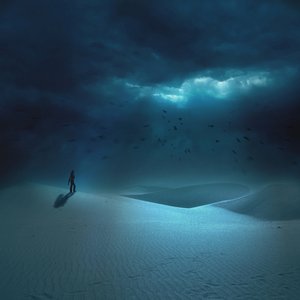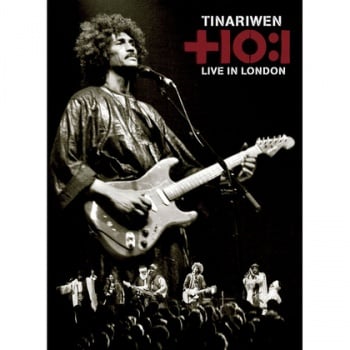Desert Blues
(→See also) |
|||
| (10 intermediate revisions not shown.) | |||
| Line 1: | Line 1: | ||
| - | [[Image:desert_blues.jpg|thumb|350px|right|]] | + | [[Image:desert_blues.jpg|thumb|350px|right|]][[Category: Genres]] |
In a sense with the development of the Desert Blues, modern music has come full circle. The development of [[the blues]] in America and [[reggae]] both have their roots firmly in Africa. Desert Blues music however has developed in Africa, most notably the Southern Sahara Desert but is heavily influenced by American Blues and reggae music. | In a sense with the development of the Desert Blues, modern music has come full circle. The development of [[the blues]] in America and [[reggae]] both have their roots firmly in Africa. Desert Blues music however has developed in Africa, most notably the Southern Sahara Desert but is heavily influenced by American Blues and reggae music. | ||
| Line 7: | Line 7: | ||
In an interview in 2005 [[Ali Farka Touré]] who was one of the developers and popularisers of the genre, described Mali as, <br>"a library of the history of African music. It is also the sharing of history, legend, biography of Africa."<br> | In an interview in 2005 [[Ali Farka Touré]] who was one of the developers and popularisers of the genre, described Mali as, <br>"a library of the history of African music. It is also the sharing of history, legend, biography of Africa."<br> | ||
| - | Pioneers of Desert Blues like Ali Farka Touré began playing their music on traditional African instruments such as the njurkle, a one-stringed West African lute, or the n'jarka, a one-stringed fiddle, or the n'goni, a four-stringed lute. Eventually Touré transferred to guitar. Through radio he heard American soul, blues and funk, which he recognised as being rooted in the music of West Africa. Touré developed links between the traditional droning riffs of | + | Pioneers of Desert Blues like [[Ali Farka Touré]] began playing their music on traditional African instruments such as the njurkle, a one-stringed West African lute, or the n'jarka, a one-stringed fiddle, or the n'goni, a four-stringed lute. Eventually Touré transferred to guitar. Through radio he heard American soul, blues and funk, which he recognised as being rooted in the music of West Africa. Touré developed links between the traditional droning riffs of Malian music with the shuffle of American blues most notably the music of [[John Lee Hooker]] and so the Desert Blues was born. |
== Out Of Africa == | == Out Of Africa == | ||
| - | In the early 70's Ali Farka Touré worked as an engineer for Radio Mali. Through this he was able to perform on air and some of this was recorded and released in France. This led to international recognition and he became a star on the world music circuit. Collaborations with other artists widened his appeal. Most notably he worked with Ry Cooder winning a Grammy in 1994 for "Talking Timbuktu". | + | In the early 70's Ali Farka Touré worked as an engineer for Radio Mali. Through this he was able to perform on air and some of this was recorded and released in France. This led to international recognition and he became a star on the world music circuit. Collaborations with other artists widened his appeal. Most notably he worked with [[Ry Cooder]] winning a Grammy in 1994 for "Talking Timbuktu". |
Ali Farka Touré died of cancer in 2006. | Ali Farka Touré died of cancer in 2006. | ||
| Line 17: | Line 17: | ||
Perhaps the most important and popular artists of the genre are Tinariwen http://www.tinariwen.com/.<br><br>"Tinariwen" can be transletaed as "The Desert Boys" and more than any other artists their music defines the genre. Led by Ibrahim Ag Alhabib they have toured widely and released four albums each bringing their music to an ever wider audience. | Perhaps the most important and popular artists of the genre are Tinariwen http://www.tinariwen.com/.<br><br>"Tinariwen" can be transletaed as "The Desert Boys" and more than any other artists their music defines the genre. Led by Ibrahim Ag Alhabib they have toured widely and released four albums each bringing their music to an ever wider audience. | ||
| + | |||
| + | Their music is pure blues and rock, at times more [[Led Zepplin]] than Led Zepplin, but always steeped in the history of the destert. | ||
{{#ev:youtube|-MHAKNL-Vkg}} | {{#ev:youtube|-MHAKNL-Vkg}} | ||
| Line 29: | Line 31: | ||
Daby Baldy <br> | Daby Baldy <br> | ||
| - | == | + | == Recommended Albums == |
| - | + | The Rough Guide to African Blues,Various Artists<br> | |
| + | Tchamantche,Rokia Traore<br> | ||
| + | Imidiwan: Companions, Tinariwen<br> | ||
| + | Aman Iman: Water is Life, Tinariwen<br> | ||
| + | Radio Tisdas Sessions, Tinariwen<br> | ||
| + | Amassakoul, Tinariwen <br> | ||
| + | Savane, Ali Farka Toure | ||
Current revision
In a sense with the development of the Desert Blues, modern music has come full circle. The development of the blues in America and reggae both have their roots firmly in Africa. Desert Blues music however has developed in Africa, most notably the Southern Sahara Desert but is heavily influenced by American Blues and reggae music.
Desert Blues music also reflects the turmoil in the lives of the Nomadic people of the Southern Sahara most notably the Tuareg people in Mali, following the end of French colonial rule in 1960. In this sense the music is truely blues.
In an interview in 2005 Ali Farka Touré who was one of the developers and popularisers of the genre, described Mali as,
"a library of the history of African music. It is also the sharing of history, legend, biography of Africa."
Pioneers of Desert Blues like Ali Farka Touré began playing their music on traditional African instruments such as the njurkle, a one-stringed West African lute, or the n'jarka, a one-stringed fiddle, or the n'goni, a four-stringed lute. Eventually Touré transferred to guitar. Through radio he heard American soul, blues and funk, which he recognised as being rooted in the music of West Africa. Touré developed links between the traditional droning riffs of Malian music with the shuffle of American blues most notably the music of John Lee Hooker and so the Desert Blues was born.
Contents |
Out Of Africa
In the early 70's Ali Farka Touré worked as an engineer for Radio Mali. Through this he was able to perform on air and some of this was recorded and released in France. This led to international recognition and he became a star on the world music circuit. Collaborations with other artists widened his appeal. Most notably he worked with Ry Cooder winning a Grammy in 1994 for "Talking Timbuktu". Ali Farka Touré died of cancer in 2006.
Tinariwen
Perhaps the most important and popular artists of the genre are Tinariwen http://www.tinariwen.com/.
"Tinariwen" can be transletaed as "The Desert Boys" and more than any other artists their music defines the genre. Led by Ibrahim Ag Alhabib they have toured widely and released four albums each bringing their music to an ever wider audience.
Their music is pure blues and rock, at times more Led Zepplin than Led Zepplin, but always steeped in the history of the destert.
Recommended Desert Blues Artists and Bands
Tinariwen
Ali Farka Touré
Baaba Maal
Sali Sidibe
Rokia Traoré
Etran Finatawa
Daby Baldy
Recommended Albums
The Rough Guide to African Blues,Various Artists
Tchamantche,Rokia Traore
Imidiwan: Companions, Tinariwen
Aman Iman: Water is Life, Tinariwen
Radio Tisdas Sessions, Tinariwen
Amassakoul, Tinariwen
Savane, Ali Farka Toure







